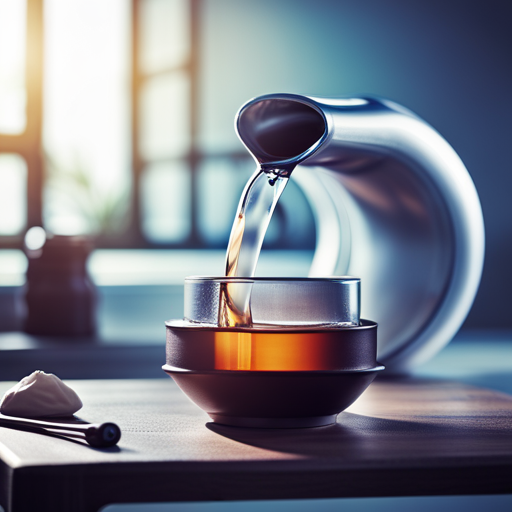Are you tired of constantly battling nasal congestion caused by allergies and colds? Neti pots are a popular and effective way to relieve these symptoms, but it is important to prioritize safety when using them. One key aspect of safe Neti pot usage is using safe water.
While it may be tempting to use filtered fridge water for convenience, the CDC recommends against it due to potential health risks. In this article, you will learn about the importance of safe water for Neti pots and the potential risks associated with using filtered fridge water.
You will also receive tips on how to properly use a Neti pot to avoid any potential health hazards. By following these guidelines, you can safely and effectively alleviate your nasal congestion without any unnecessary risks.
So, let’s dive in and explore how to use a Neti pot safely!
Key Takeaways
– Safe water is crucial when using a Neti pot.
– Boiled or sterile water is recommended by the CDC to avoid potential health risks.
– Using filtered fridge water may not be suitable as it may not remove all harmful substances.
– Untreated water can contain harmful organisms that can cause serious health problems, so a 1-micron or smaller absolute pore size filtration system is recommended.
CDC Recommendations
If you’re considering using filtered fridge water for your Neti pot, keep in mind that the CDC guidelines recommend using boiled or sterile water. This is because untreated water can contain harmful organisms that can cause serious health problems. The CDC recommends using a 1-micron or smaller absolute pore size filtration system to ensure that the water is free of harmful organisms.
Water sterilization is an important step in using a Neti pot safely. To sterilize the water, you can either boil it or use a sterile solution. Boiling water for at least 3-5 minutes is the most effective way to sterilize it, but you can also use sterile water that has been purchased from the store.
It’s important to always use a clean Neti pot and to avoid using tap water, as it may not be properly filtered or sterilized. By following these simple guidelines, you can safely use a Neti pot to relieve sinus symptoms.
Filtered Fridge Water Risks
You may be putting yourself at risk by using filtered fridge water for your sinus rinse. While it may seem convenient and affordable, filtered water from your fridge may not be suitable for a neti pot. The water quality may not be good enough, and the filter may not have a small enough pore size to remove all harmful substances.
In fact, untreated water has been linked to health concerns such as infections and other sinus-related issues. To ensure the safety of your sinus rinse, it’s recommended by the CDC to use boiled or sterile water for your neti pot. If you insist on using filtered water, make sure that your filter has a 1-micron or smaller absolute pore size filtration system.
Remember, the quality of your water and your filter can greatly affect your sinus health. So, take extra precautions and use only safe and reliable sources of water for your neti pot.
Neti Pot Usage and Tips
To properly use a neti pot, tilt your head and pour the solution through your nostrils while breathing through your mouth. This can help with allergies and colds, but it’s important to take precautions to ensure your safety.
Here are some tips to keep in mind:
1. Always use filtered, boiled, saline, or distilled water in your neti pot. Untreated water can lead to health issues, so it’s important to be mindful of the water you use.
2. Avoid using a neti pot if you have an active infection, open wound, sinonasal/lacrimal duct disorders, facial surgery, or trauma. Using a neti pot in these cases can cause further complications.
3. If your condition doesn’t clear up after using a neti pot, stop use and consult with a healthcare professional. While neti pots can be helpful, they may not be enough to fully treat certain conditions.
Overall, neti pots can provide many benefits for those dealing with sinus issues, but it’s important to take precautions and use them properly to ensure your safety.
Conclusion
Now that you know the importance of using safe water for your Neti pot, you can take the necessary steps to ensure your health and safety.
Remember to always use boiled or sterile water with a 1-micron or smaller absolute pore size filtration system. Avoid using filtered fridge water, as it may not be safe for use with Neti pots.
When using your Neti pot, be sure to follow proper usage guidelines to avoid potential health risks. This includes using the correct water temperature, tilting your head at the proper angle, and cleaning your Neti pot regularly.
By taking these precautions, you can safely and effectively relieve nasal congestion and other symptoms caused by allergies and colds.
